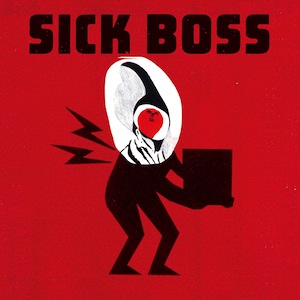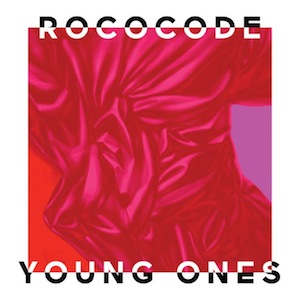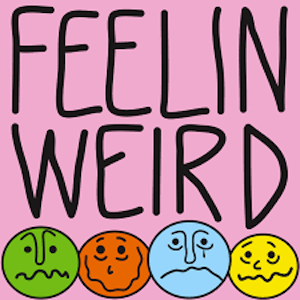With each of its three members playing in an obscene number of musical projects, it’s a wonder Sick Boss even found the time to put a record of their own together. After years in the making, the self-titled Sick Boss is here.
Comprised of drummer Dan Gaucher, bassist James Meger and guitarist Cole Schmidt, the Vancouver trio runs the gamut between genres and styles throughout their debut release, with incredible ease and dexterity.
“Amadman” kicks off the record with glitches and gloom alongside truly incredible musicianship. An unnerving soundscape emerges from the start, with tweaking guitar and synth noise, and a wash of keys. Slowing, a steady pulse materializes and Gaucher’s driving drums kick in, as a moaning voice floats in and out. The cacophony builds until, in perfect sync, all the sounds coagulate in a carefully orchestrated stab.
This mixture of compositional nuance and free-wheeling improvisation is what brings the entire album together. Every song seems to be on the verge of exploding with musical ideas. At the hands of lesser artists, the album would crumble under its own weight, but Gaucher, Meger and Schmidt show that they have the confidence and skill to keep it alive and exciting.
Despite diving into the depths of discord, Sick Boss is not afraid to produce something sonically beautiful as well. This dichotomy is best seen during the last two tracks of the record — “Bug Ya! (Pt. 2)” is a jittery, dissonant and intricate collection of sounds, more textured than harmonious, followed directly by “Troubled,” a slow burning ballad featuring rich piano, string pads and Debra-Jean Creelman’s gentle crooning.
While technically only a trio, Sick Boss enlists the help of countless prominent Vancouver musicians to fill out the entirety of the nine tracks. Peggy Lee’s cello slashes across “Mona”; JP Carter’s trumpet soars over the ending of “Bad Buddhist”; Jeremy Page’s clarinet cuts through the noise of “Amadman.”
Vocalists Creelman and Molly Guldemond take centre stage on the jazz-age “See You Out There.” Overtop the smooth shuffle of instrumentation they sing “See me / Out there / Always / See me / Always / Out there,” as if embodying the music itself, suspended in time, drawing on both antiquated jazz and cutting edge experimentalism. Sick Boss’s constantly morphing style and sound seems always to have been here and sounds like it always will.






